Fleurs du Mal Magazine


Or see the index
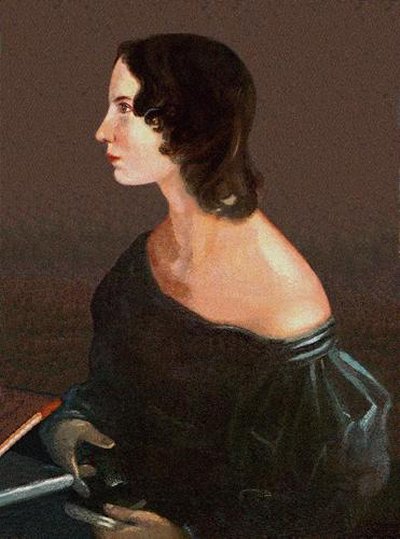
Emily Brontë
(1818-1848)
The Night-Wind
In summer’s mellow midnight,
A cloudless moon shone through
Our open parlour window
And rosetrees wet with dew.
I sat in silent musing,
The soft wind waved my hair:
It told me Heaven was glorious.
And sleeping Earth was fair.
I needed not its breathing
To bring such thoughts to me,
But still it whispered lowly,
“How dark the woods will be!
“The thick leaves in my murmur
Are rustling like a dream,
And all their myriad voices
Instinct with spirit seem.”
I said, “Go, gentle singer,
Thy wooing voice is kind,
But do not think its music
Has power to reach my mind.
“Play with the scented flower,
The young tree’s supple bough,
And leave my human feelings
In their own course to flow.”
The wanderer would not leave me;
Its kiss grew warmer still –
“O come,” it sighed so sweetly,
“I’ll win thee ‘gainst thy will.
“Have we not been from childhood friends?
Have I not loved thee long?
As long as thou hast loved the night
Whose silence wakes my song.
“And when thy heart is laid at rest
Beneath the church-yard stone
I shall have time enough to mourn
And thou to be alone.”
1840
Emily Brontë
De nachtwind
In ‘t milde zomer-nachtuur
Scheen ‘t maanlicht helderblauw
Door de openstaande tuindeur
En rozenboom vol dauw.
Ik zat in rust te mijmeren,
Mij roerde zacht de wind:
Hij vond de Hemel roemrijk,
d’ Aard’, slapend, welgezind.
Zijn adem kon ik missen
Voor zo ‘n gedachtenlijn,
Maar toch sprak hij weer zachtjes,
“Het bos zal donker zijn!
“Het loof ritselt als schimmen
Door mijn geruis geraakt,
En al hun stemmen schijnen
Door geesten wijs gemaakt.”
Ik zei, “Ga, goede zanger,
Al klinkt je vlei-lied zoet,
Meen niet dat jouw nocturne
Mijn denken wankelen doet.
“Bespeel geurende bloemen,
Raak jonge twijgen aan,
Maar laat mijn mens-gevoelens
Hun eigen weg inslaan.”
De zwerver wou niet heengaan;
Zijn kus nam toe in gloed –
“O kom,” zuchtte hij zachtjes,
“Ik win je, wat je ook doet.
“Was jij van jongsaf niet mijn vriend?
Mind’ ik je niet allang?
Zo lang je al dol bent op de nacht
Wekt stilte daar mijn zang.
“En als op ‘t kerkhof in je graf
Je hart is neergevleid
Heb ik veel tijd voor rouwbeklag
En jij voor eenzaamheid.”
Vertaling Cornelis W. Schoneveld
Uit: Bestorm mijn hart, de beste Engelse gedichten uit de 16e-19e eeuw gekozen en vertaald door Cornelis W. Schoneveld, tweetalige editie. Rainbow Essentials no. 55, Uitgeverij Maarten Muntinga, Amsterdam, 2008, 296 pp, € 9,95 ISBN: 9789041740588
fleursdumal.nl magazine
More in: Anne, Emily & Charlotte Brontë, Archive A-B, Brontë, Brontë, Anne, Emily & Charlotte
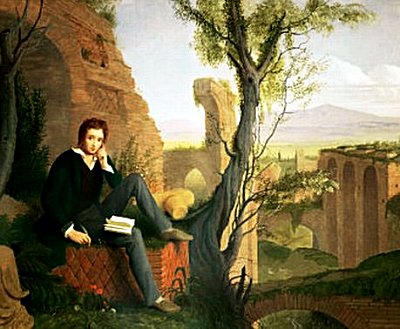
Percy Byssche Shelley
(1792-1822)
To Night
Swiftly walk o’er the western wave,
Spirit of Night!
Out of the misty eastern cave,
Where, all the long and lone daylight,
Thou wovest dreams of joy and fear,
Which make thee terrible and dear, –
Swift be thy flight!
Wrap thy form in a mantle grey,
Star-inwrought!
Blind with thine hair the eyes of Day;
Kiss her until she be wearied out –
Then wander o’er city, and sea, and land,
Touching all with thine opiate wand –
Come, long-sought!
When I arose and saw the dawn,
I sighed for thee;
When light rode high, and the dew was gone,
And noon lay heavy on flower and tree,
And the weary Day turned to his rest,
Lingering like an unloved guest,
I sighed for thee.
Thy brother Death came, and cried,
Wouldst thou me?
Thy sweet child Sleep, the filmy-eyed,
Murmured like a noontide bee,
Shall I nestle near thy side?
Wouldst thou me? – And I replied,
No, not thee!
Death will come when thou art dead,
Soon, too soon –
Sleep will come when thou art fled;
Of neither would I ask the boon
I ask of thee belovèd Night –
Swift be thine approaching flight,
Come soon, soon!
1821
Percy Byssche Shelley
Aan de nacht
Jaag snel over de westgolf voort,
Geest van de Nacht!
Uit de mistgrot van ‘t oosters oord,
Waar, ‘t daglicht lang, jij eenzaam wacht,
En bange en blije dromen weeft,
Wat angst, en vriendschap, voor je geeft, –
Snel zij je jacht!
Neem ‘n mantel, grijs, met sterbeslag,
Sla hem om!
Blinddoek met j’ haardos eerst de Dag;
Kus haar dan moe, weerom en weerom –
Ga daarna stad, en land, en zeeën af,
‘t Al rakend met je opiumstaf –
Gezochte, kom!
Toen de ochtend gloorde voor mijn oog,
Gold jou mijn zucht;
Toen dauw weg was, en het daglicht hoog,
Toen ‘t groen leed door de middaglucht,
En toen moe de Dag zocht naar zijn rust,
Dralend als ‘n gast, lang weggekust,
Gold jou mijn zucht.
Je broer de Dood kwam, en vroeg,
“Zocht je mij?”
Je zoet kind Slaap, die ‘n oogfloers droeg,
Gonsde als een middagbij:
“Wou jij dat ik naast je sliep?
Zocht je mij?” – Waarop ik riep,
“Weg hier, jij!”
Dood komt na jouw laatste zucht,
Gauw, te gauw –
Slaap komt als jij bent gevlucht;
De gunst die ik nu vraag van jou
Vraag ik hun niet, geliefde Nacht –
Eindig hier gezwind je jacht,
Kom gauw, gauw!
Vertaling Cornelis W. Schoneveld
Uit: Bestorm mijn hart, de beste Engelse gedichten uit de 16e-19e eeuw gekozen en vertaald door Cornelis W. Schoneveld, tweetalige editie. Rainbow Essentials no. 55, Uitgeverij Maarten Muntinga, Amsterdam, 2008, 296 pp, € 9,95 ISBN: 9789041740588
Kempis.nl poetry magazine
More in: Archive S-T, Percy Byssche Shelley, Shelley, Shelley, Percy Byssche


photos anton k.
Amy Winehouse graffiti
Its not the choice that breaks you, its the decision rather you want to be broken.
Amy 1983-2011 R.I.P.
Graffity, Tilburg NL, August 2011
flleursdumal.nl magazine
More in: Amy Winehouse, Amy Winehouse, Graffity, Street Art, Urban Art
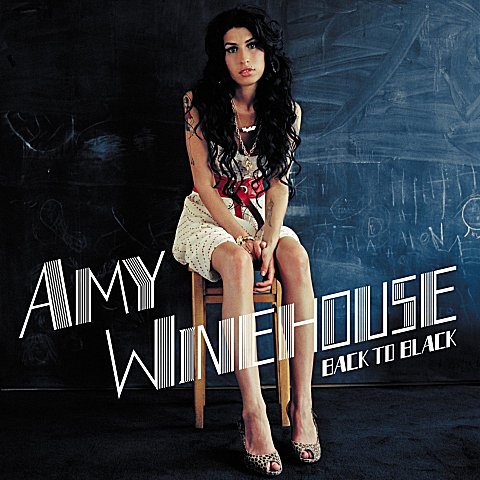
In Memoriam Amy Winehouse
Southgate, 14 september 1983 – Camden, 23 juli 2011
Back To Black
Song Text
He left no time to regret
Kept his dick wet
With his same old safe bet
Me and my head high
And my tears dry
Get on without my guy
You went back to what you knew
So far removed from all that we went through
And I tread a troubled track
My odds are stacked
I’ll go back to black
We only said good-bye with words
I died a hundred times
You go back to her
And I go back to…..
I go back to us
I love you much
It’s not enough
You love blow and I love puff
And life is like a pipe
And I’m a tiny penny rolling up the walls inside
We only said goodbye with words
I died a hundred times
You go back to her
And I go back to
(…)
We only said good-bye with words
I died a hundred times
You go back to her
And I go back to black
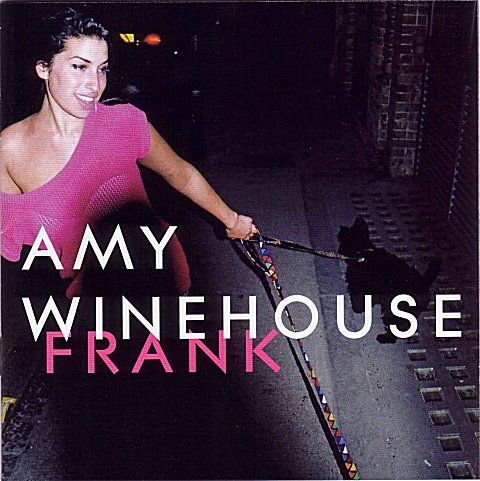
fleursdumal.nl magazine
More in: Amy Winehouse, Amy Winehouse, Exhibition Archive
In memory of
Amy Winehouse
(1983-2011)
Back to Black
We only said good-bye with words
I died a hundred times
You go back to her
And I go back to black
fleursdumal.nl magazine
More in: Amy Winehouse, Amy Winehouse, Exhibition Archive, In Memoriam
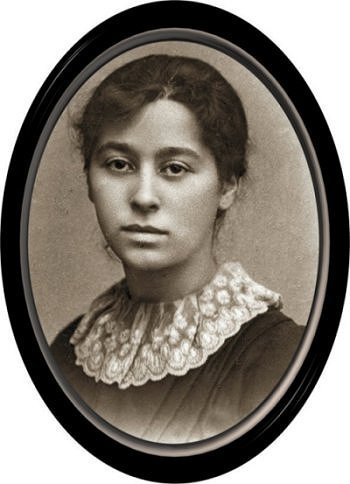
Amy Levy
(1861-1889)
Ballade of an Omnibus
“To see my love suffices me.”
Ballades in Blue China
Some men to carriages aspire;
On some the costly hansoms wait;
Some seek a fly, on job or hire;
Some mount the trotting steed, elate.
I envy not the rich and great,
A wandering minstrel, poor and free,
I am contented with my fate —
An omnibus suffices me.
In winter days of rain and mire
I find within a corner strait;
The ‘busmen know me and my lyre
From Brompton to the Bull-and-Gate.
When summer comes, I mount in state
The topmost summit, whence I see
Crœsus look up, compassionate —
An omnibus suffices me.
I mark, untroubled by desire,
Lucullus’ phaeton and its freight.
The scene whereof I cannot tire,
The human tale of love and hate,
The city pageant, early and late
Unfolds itself, rolls by, to be
A pleasure deep and delicate.
An omnibus suffices me.
Princess, your splendour you require,
I, my simplicity; agree
Neither to rate lower nor higher.
An omnibus suffices me.
Amy Levy poetry
fleursdumal.nl magazine
More in: Amy Levy, Archive K-L, Levy, Amy
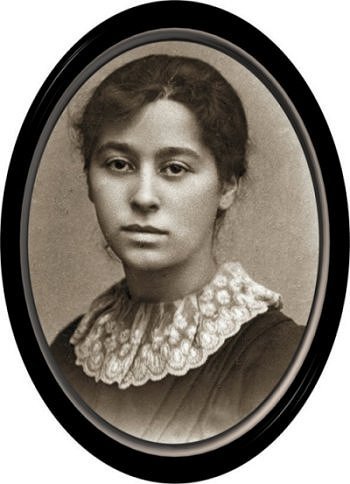
Amy Levy
(1861-1889)
A June-Tide Echo
(After a Richter Concert)
In the long, sad time, when the sky was grey,
And the keen blast blew through the city drear,
When delight had fled from the night and the day,
My chill heart whispered, ” June will be here!
” June with its roses a-sway in the sun,
Its glory of green on mead and tree.”
Lo, now the sweet June-tide is nearly done,
June-tide, and never a joy for me
Is it so much of the gods that I pray?
Sure craved man never so slight a boon!
To be glad and glad in my heart one day–
One perfect day of the perfect June.
Sweet sounds to-night rose up, wave upon wave;
Sweet dreams were afloat in the balmy air.
This is the boon of the gods that I crave–
To be glad, as the music and night were fair.
For once, for one fleeting hour, to hold
The fair shape the music that rose and fell
Revealed and concealed like a veiling fold;
To catch for an instant the sweet June spell.
For once, for one hour, to catch and keep
The sweet June secret that mocks my heart;
Now lurking calm, like a thing asleep,
Now hither and thither with start and dart.
Then the sick, slow grief of the weary years,
The slow, sick grief and the sudden pain;
The long days of labour, the nights of tears–
No more these things would I hold in vain.
I would hold my life as a thing of worth;
Pour praise to the gods for a precious thing.
Lo, June in her fairness is on earth,
And never a joy does the niggard bring.
Amy Levy poetry
fleursdumal.nl magazine
More in: Amy Levy, Archive K-L, Levy, Amy
.jpg)
Ingrid Jonker (1933-1965)
Film Black Butterflies op 31 maart in de bioscoop
Black Butterflies gaat over het leven van de jonge Zuid-Afrikaanse kunstenares Ingrid Jonker, een gevoelige en rebelse geest die haar vrije ideeën over kunst, liefde en politiek met een kleine groep gelijkgestemde schrijvers en kunstenaars in Zuid-Afrika deelde, de Sestigers. Tegen de achtergrond van verzet tegen de censuur van de Nasionale Party, leeft Ingrid Jonker haar jonge leven tot het uiterste en wordt haar werk steeds bekender en meer gewaardeerd. De grote liefde in het leven van Ingrid Jonker, de schrijver Jack Cope, kan haar niet het geluk en de gemoedsrust geven waar ze naar op zoek is. Met haar vader Abraham Jonker, een rechtse minister voor de Nasionale Party tijdens het Apartheidsregime, heeft ze een moeizame relatie. Politieke onenigheid drijft vader en dochter steeds verder uiteen. Het belang van het werk van Ingrid Jonker voor de Zuid-Afrikaanse cultuur wordt pas erkend nadat Nelson Mandela haar gedicht ‘Die Kind’ voordraagt bij zijn eerste rede voor het Zuid-Afrikaanse Parlement in 1994.
Regisseur: Paula van der Oest
Carice van Houten (Ingrid Jonker)
Liam Cunningham (Jack Cope)
Rutger Hauer (Abraham Jonker)
Nicholas Pauling (Eugene Maritz)
Graham Clarke (Uys Krige)
► Website BLACK BUTTERFLIES
Ingrid Jonker poetry
fleursdumal.nl magazine
More in: # Archive S.A. literature, Apartheid, Archive I-J, Ingrid Jonker, Ingrid Jonker, Jonker, Ingrid
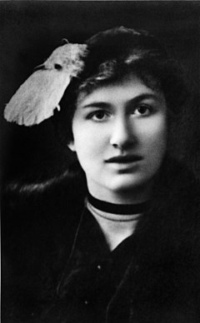
Edith Södergran
(1892-1923)
Till Eros
Eros, du grymmaste av alla gudar,
varför förde du mig till det mörka landet?
När flickebarnen växa till
bliva de utestängda från ljuset
och kastade i ett mörkt rum.
Svävade icke min själ som en lycklig stjärna
innan den blev dragen i din röda ring?
Se, jag är bunden till händer och fötter,
känn, jag är tvungen till alla mina tankar.
Eros, du grymmaste av alla gudar:
jag flyr icke, jag väntar icke,
jag lider endast som ett djur.
A Eros
Eros, tu il più crudele di tutti gli dei,
perché mi hai condotto alla terra oscura?
Quando crescono, le fanciulle
sono escluse dalla luce
e gettate in uno spazio oscuro.
La mia anima non stava sospesa come una stella felice
prima d’esser attratta nella tua corona rossa?
Vedi, sono legata mani e piedi,
senti, sono costretta in tutti i miei pensieri.
Eros, tu il più crudele di tutti gli dei:
io non fuggo, non aspetto,
soltanto, soffro come un animale.
Edith Södergran poetry
fleursdumal.nl magazine
More in: Edith Södergran, Södergran, Edith
Nieuwe film over het leven van de Zuid-Afrikaanse dichteres
Ingrid Jonker:
Black Butterflies
31 maart in de bioscoop
Ingrid Jonker (1933-1965) was een van de meest invloedrijke Zuid-Afrikaanse dichters van haar generatie. Vaak wordt ze vanwege haar grote talent, haar schoonheid en eeuwige hunkering naar liefde vergeleken met Virginia Woolf, Sylvia Plath en Marylin Monroe.
Tijdens haar korte leven was ze al een zeer gewaardeerd schrijfster, maar pas nadat Nelson Mandela haar beroemde gedicht ‘Het Kind’ voordroeg, tijdens de opening van het parlement in 1994, krijgt Ingrid de waardering van het grote publiek die ze verdient. Mandela noemt haar zowel een Afrikaner als een Afrikaan en Ingrid groeit uit tot een waar icoon. Haar werk wordt tot op de dag van vandaag door miljoenen Zuid-Afrikaners gelezen en op scholen onderwezen.
Nog voor de geboorte van Ingrid verlaat haar vader, Abraham Jonker, het gezin en laat ze met niets achter. Ingrid groeit op bij haar grootouders en ziet daar hoe haar geesteszieke moeder steeds depressiever wordt en uiteindelijk zelfmoord pleegt als Ingrid tien jaar is. Haar grootmoeder is niet in staat om voor Ingrid en haar zus Anna te zorgen en de meisjes moeten bij hun vader en zijn nieuwe gezin gaan wonen. Abraham Jonker accepteert zijn dochters met moeite en maakt duidelijk onderscheid tussen Ingrid en Anna en zijn andere kinderen, iets wat Ingrid niet kan en wil begrijpen en het begin is van de moeilijke relatie met haar vader.
Ingrid is een zeer gevoelig kind en stopt al het verdriet in haar gedichten. Al op dertienjarige leeftijd maakt ze haar eerste gedichtenbundel getiteld Na die Somer. Als ze later in contact komt met de bekende Zuid-Afrikaanse dichter D.J. Opperman vindt ze in hem de mentor die ze nodig heeft. De relatie met haar vader daarentegen verslechtert. De erkenning die Ingrid als dochter van hem wil, krijgt ze niet en met haar vrijgevochten ideeën raakt ze steeds verder van hem verwijderd.
In 1956 trouwt Ingrid met schrijver Pieter Venter en verhuist naar Johannesburg. Ook wordt haar eerste officiële bundel, Ontvlugting, gepubliceerd. Het huwelijk met Pieter is geen succes. Ingrid vindt niet de liefde en zekerheid die ze nodig heeft en is diep ongelukkig in Johannesburg. Na een aantal jaar scheiden ze en Ingrid keert met hun dochtertje Simone terug naar Kaapstad.
In Kaapstad wordt Ingrid de ster van de ‘Sestigers’, een groep artiesten rondom dichter Uys Krige die strijden tegen het conservatisme en zich vrijelijk mengen met Afrikaanse kunstenaars. Ze heeft tegelijkertijd een heftige verhouding met de schrijvers Jack Cope en André Brink. Beiden sleept ze mee in haar passionele liefde, maar beiden durven zich door haar onvoorspelbaarheid niet aan haar te binden. De publicatie van een tweede bundel van Ingrid stuit op veel weerstand door het duidelijke standpunt dat Ingrid met de Sestigers in neemt tegen de Apartheid en wordt tegengehouden door de nieuwe censuurcommissie, waar haar vader deel van uit maakt. Vader en dochter staan lijnrecht tegenover elkaar. Voor de gevoelige Ingrid is dit te veel, ze belandt in een depressie. In 1961 wordt ze kort opgenomen in de psychiatrische inrichting Valkenburg, dezelfde kliniek waar haar moeder een einde aan haar leven maakte. Nadat ze is ontslagen uit de kliniek, lijken er betere aan te breken. Eindelijk wordt haar tweede bundel Rook en Oker gepubliceerd. De bundel wordt met lovende kritieken ontvangen door schrijvers en dichters.
Rook en Oker wordt in 1964 bekroond met de prestigieuze Afrikaanse Pers-Boekhandel Prijs en Ingrid vertrekt naar Europa voor een lange reis. De reis brengt haar niet wat ze ervan had verwacht en eenmaal terug in Zuid-Afrika wordt ze weer opgenomen. In de nacht van 18 op 19 juli 1965 loopt Ingrid de zee in bij Drieankerbaai. Ingrid Jonker was 32 jaar en liet een klein maar indrukwekkend oeuvre achter.

Uitgeverij Podium geeft een nieuwe editie uit van de bundel ‘Ik herhaal je’ met een selectie van het werk van Ingrid Jonker, vertaald door Gerrit Komrij, en een biografie van Henk van Woerden.
Het verhaal van Black Butterflies
Black Butterflies gaat over het leven van de jonge Zuid-Afrikaanse kunstenares Ingrid Jonker, een gevoelige en rebelse geest die haar vrije ideeën over kunst, liefde en politiek met een kleine groep gelijkgestemde schrijvers en kunstenaars in Zuid-Afrika deelde, de Sestigers. Tegen de achtergrond van verzet tegen de censuur van de Nasionale Party, leeft Ingrid Jonker haar jonge leven tot het uiterste en wordt haar werk steeds bekender en meer gewaardeerd. De grote liefde in het leven van Ingrid Jonker, de schrijver Jack Cope, kan haar niet het geluk en de gemoedsrust geven waar ze naar op zoek is. Met haar vader Abraham Jonker, een rechtse minister voor de Nasionale Party tijdens het Apartheidsregime, heeft ze een moeizame relatie. Politieke onenigheid drijft vader en dochter steeds verder uiteen. Het belang van het werk van Ingrid Jonker voor de Zuid-Afrikaanse cultuur wordt pas erkend nadat Nelson Mandela haar gedicht ‘Die Kind’ voordraagt bij zijn eerste rede voor het Zuid-Afrikaanse Parlement in 1994.
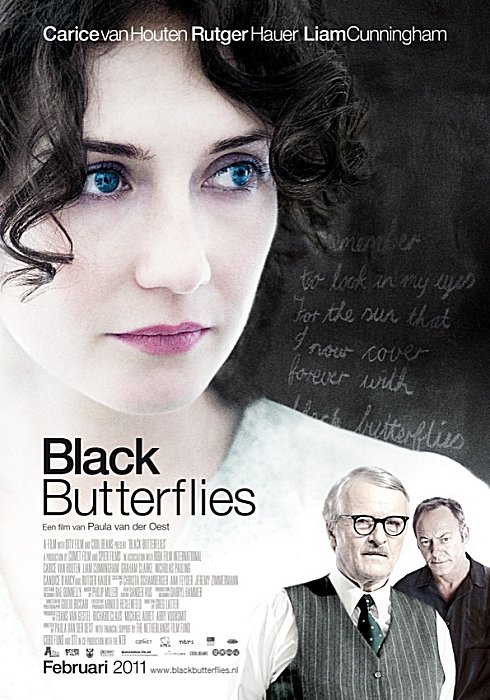
The child who was shot dead by soldiers in Nyanga
The child is not dead
the child raises his fists against his mother
who screams Africa screams the smell
of freedom and heather
in the locations of the heart under siege
The child raises his fists against his father
in the march of the generations
who scream Africa scream the smell
of justice and blood
in the streets of his armed pride
The child is not dead
neither at Langa nor at Nyanga
nor at Orlando nor at Sharpeville
nor at the police station in Philippi
where he lies with a bullet in his head
The child is the shadow of the soldiers
on guard with guns saracens and batons
the child is present at all meetings and legislations
the child peeps through the windows of houses and into the hearts of mothers
the child who just wanted to play in the sun at Nyanga is everywhere
the child who became a man treks through all of Africa
the child who became a giant travels through the whole world
Without a pass
© Translation: 2007, Antjie Krog & André Brink – From: Black Butterflies – Publisher: Human & Rousseau, Cape Town, 2007
Regisseur: Paula van der Oest (1965) studeerde in 1988 af aan de Nederlandse Film en Televisie Academie en begon haar carrière als regie-assistente en later als regisseuse bij de VPRO. Haar speelfilmdebuut kwam in 1996 met de film DE NIEUWE MOEDER, waarmee ze meteen een nominatie voor Beste Film op het Nederlands Film Festival in de wacht sleepte en de Holland Film Award voor Beste Film won. In 2001 maakte Van der Oest de overstap naar het grote publiek met ZUS EN ZO, die genomineerd werd voor de Oscar voor Beste Buitenlandse Film. Time Magazine benoemde haar tot de “Woody Allen van Amsterdam”. Na dit succes volgde de Engelstalige thriller MOONLIGHT, waarmee ze de Hollywood Discovery Award voor Beste Europese Film won. Andere films van Paula van der Oest zijn MADAME JEANETTE, VERBORGEN GEBREKEN, TIRAMISU en WIJSTER.
Carice van Houten (Ingrid Jonker) – Liam Cunningham (Jack Cope) – Rutger Hauer (Abraham Jonker) – Nicholas Pauling (Eugene Maritz) – Graham Clarke (Uys Krige)
fleursdumal.nl magazine
magazine for art & literature
More in: # Archive S.A. literature, Apartheid, AUDIO, CINEMA, RADIO & TV, Ingrid Jonker, Ingrid Jonker, Jonker, Ingrid, Sylvia Plath
.jpg)
Amy Levy
(1861-1889)
Epitaph
(On a Commonplace Person Who Died in Bed)
THIS is the end of him, here he lies:
The dust in his throat, the worm in his eyes,
The mould in his mouth, the turf on his breast;
This is the end of him, this is best.
He will never lie on his couch awake,
Wide-eyed, tearless, till dim daybreak.
Never again will he smile and smile
When his heart is breaking all the while.
He will never stretch out his hands in vain
Groping and groping–never again.
Never ask for bread, get a stone instead,
Never pretend that the stone is bread.
Never sway and sway ‘twixt the false and true,
Weighing and noting the long hours through.
Never ache and ache with chok’d-up sighs;
This is the end of him, here he lies.
Amy Levy poetry
fleursdumal.nl magazine
More in: Amy Levy, Archive K-L, Levy, Amy
.jpg)
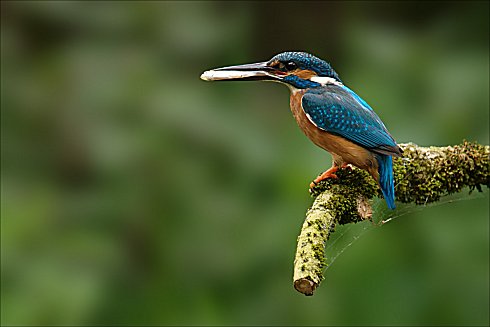
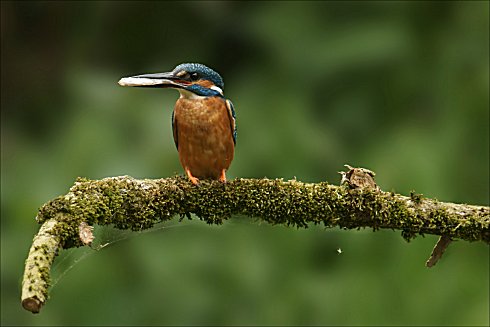
John Keats
(1795-1821)
The Human Seasons
Four Seasons fill the measure of the year;
There are four seasons in the mind of man:
He has his lusty Spring, when fancy clear
Takes in all beauty with an easy span:
He has his Summer, when luxuriously
Spring’s honied cud of youthful thought he loves
To ruminate, and by such dreaming high
Is nearest unto heaven: quiet coves
His soul has in its Autumn, when his wings
He furleth close; contented so to look
On mists in idleness–to let fair things
Pass by unheeded as a threshold brook.
He has his Winter too of pale misfeature,
Or else he would forego his mortal nature.
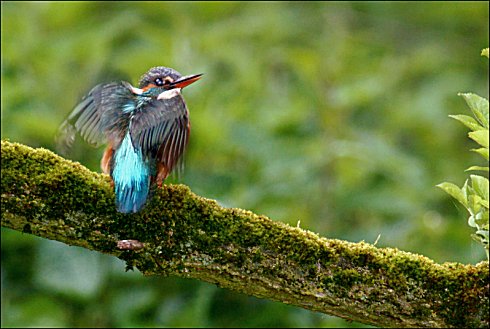

Photos: © Hans Hermans 2010
Natuurdagboek December 2010
Poem: John Keats
fleursdumal.nl magazine
More in: Hans Hermans Photos, John Keats, Keats, John, MUSEUM OF NATURAL HISTORY - department of ravens & crows, birds of prey, riding a zebra, spring, summer, autumn, winter
Thank you for reading Fleurs du Mal - magazine for art & literature